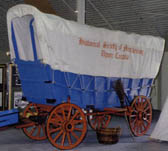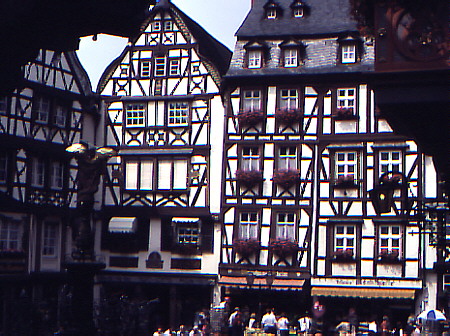 |
|
|
Introduction
| Did you already know that the first German-speaking pioneers settled
in Canada more than 300 years ago ... |
| |
| ...that in the year 1788 Governor Dorchester named the four districts
of Upper Canada Lunenburg, Mecklenburg, Nassau and
Hesse,
that two of the Fathers of Confederation were of German origin, and that
the Germans are -- after the British and French -- the third oldest and
third largest European ethnic group in Canada? |
| |
| Did you ever wonder why so little is known about the considerable German
contribution to the development of Canada and why the Germans as an active,
articulate ethnic group are hardly recognizable in Canada, why in comparison
with other ethno-cultural groups they play only a minimal role in Canada's
public life? |
| |
| Until a few decades ago such lack of knowledge regarding the history
and culture of one's own country could perhaps still be excused by referring
to customary apathy, since for a long time Canadians paid no attention
to their own history and were unsure of their own identity. Today, this
evasion from civic and cultural responsibility is no longer possible. For,
since the Canadian federal government set its multicultural model off from
the "melting pot" concept of the United States, the individual ethnic groups
have not only been given the right, but even the duty to add their contribution
to the colorful and multi-layered mosaic of Canadian culture. |
| |
| If you are of the opinion that the German ethnic group, one of the
European founding groups of today's Canada, should be more clearly profiled
within the framework of Canadian "multiculturalism" , that this group should
point to their of achievements based on historical research and that the
group should do more to promote the fertile synthesis of the German cultural
heritage and Canadian citizenship, then you belong to our HISTORICAL SOCIETY
OF MECKLENBURG UPPER CANADA. A person without knowledge of history has
no culture; cultural achievements and historical consciousness are closely
connected. The "Historical Society of Mecklenburg" aims to sharpen the
historical consciousness of German-Canadians and to let them become thereby
more conscious citizens of their country. |
|
| |
|
| |
Our Goals
| The goals of our society are -- according to its by-laws -- as follows: |
| |
| a.) to promote research into the achievements and contributions of
German-speaking people and those of German origin, |
| |
| b.) to awaken the interest of the public in these contributions, |
| |
| c.) to assemble and publish historically accurate research data, |
| |
| d.) to collect objects and documents of historical interest with the
aim of assembling these in a museum, |
| |
| e.) to cooperate with other organizations with similar missions to
achieve the above-named goals |
| |
| f.) to receive -- in line with Canadian taxation guidelines -- donations,
gifts, and bequests of money, material assets and property according to
conditions formulated by the donor. |
| |
| We need the financial and moral support of many members in order to
be able to realize our ambitious goals. |
|
| |
|
| |
Contact Information
HISTORICAL SOCIETY OF MECKLENBURG UPPER CANADA
P.O. Box 24502 + 136 Orton Rd + Toronto, Ont. + Canada + M1G 3V8
|
| |
|
|
|
The Executive
-
President /: Vorsitzender: Christian Klein
-
Treasurer / Schatzmeister: Volker Boehnke
Secretary/ Schriftfuehrer: Edward Stahlberg
-
|
| |
Publications
German-Canadian Yearbook
Canadiana Germanica
( a joint publication with the German-Canadian Historical Association
)
|
 |
|
|



